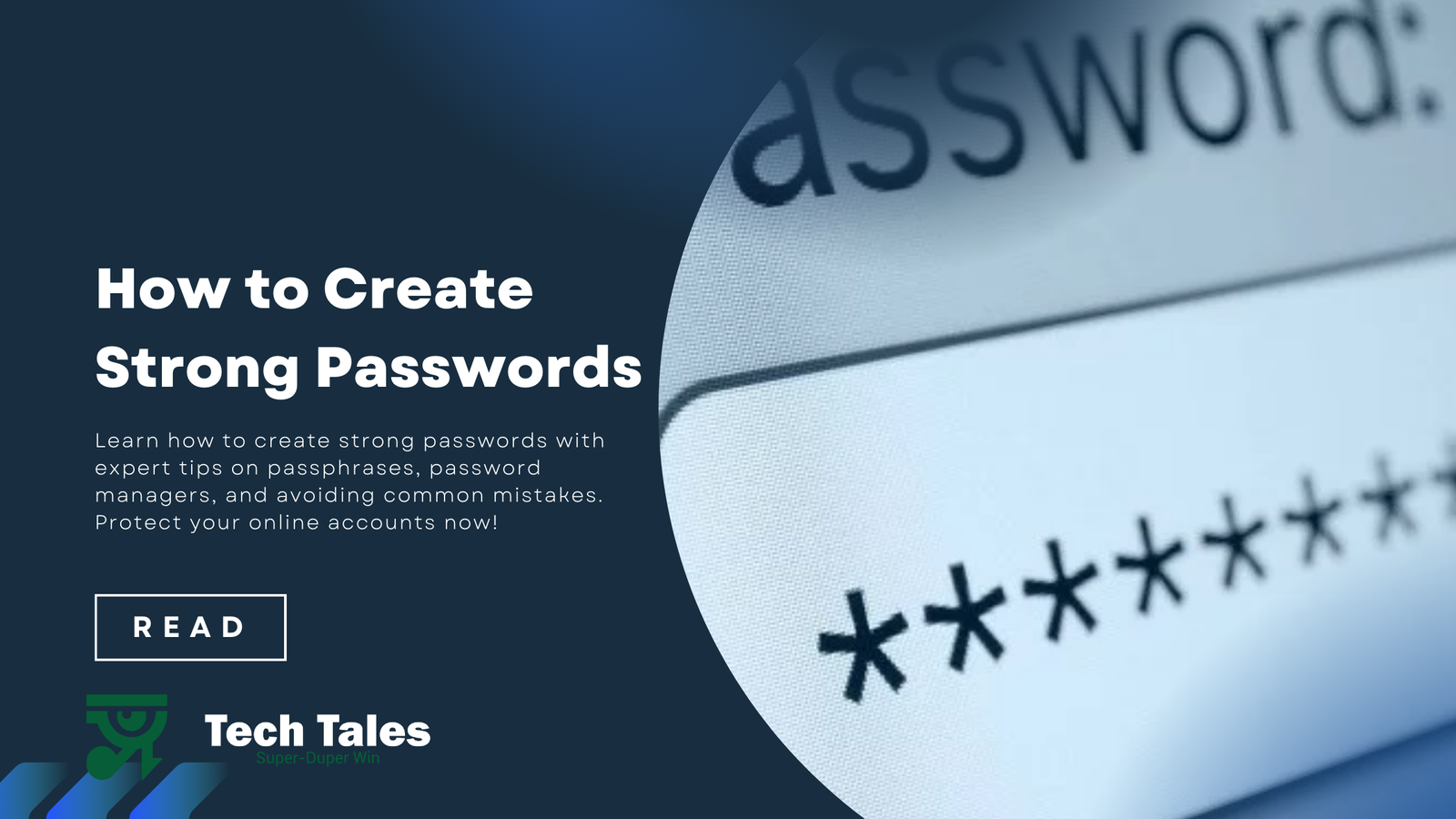Creating a strong password is essential to protect your personal and sensitive information from hackers. Below is a comprehensive guide on how to create robust passwords that can enhance your security, whether for social media accounts, online banking, or other important applications.
1. Why Strong Passwords Matter
Strong passwords protect your accounts from unauthorized access and hacking attempts, such as brute force attacks. A well-crafted password can significantly reduce your vulnerability to cyber threats.
2. Characteristics of a Strong Password
A strong password is:
- At least 12 characters long (the longer, the better).
- A combination of uppercase and lowercase letters.
- Includes numbers and special characters (e.g., !, @, #, $, etc.).
- Unique to each account.
- Not based on easily guessable information (such as birth dates, names, or common words).
3. Best Practices for Creating Strong Passwords
a. Use Passphrases
- Combine random words into a phrase, like “BlueDolphin@SkyWalk!” This method creates a long and complex password that’s easier to remember.
- Avoid commonly known phrases or quotes, as hackers may use databases of known phrases.
b. Avoid Predictable Patterns
- Avoid sequences such as “1234,” “abcd,” or “password123.”
- Don’t repeat characters, like “aaaaaa,” or use keyboard patterns like “qwerty.”
c. Use Symbols and Numbers Creatively
- Substitute letters with symbols or numbers (e.g., replace “O” with “0” or “A” with “@”), but avoid overly predictable substitutions.
- Combine symbols with uppercase and lowercase letters, like “B@seB@ll123!” rather than just “baseball123.”
4. Password Managers for Strong, Unique Passwords
Password managers can generate and store complex passwords for you, making it easier to use unique passwords without memorizing each one. Popular options include:
- LastPass
- 1Password
- Dashlane
Password managers store passwords securely, ensuring you only need to remember a single, strong master password.
5. Enable Two-Factor Authentication (2FA)
Adding an extra layer of security with 2FA (like a code sent to your phone or a fingerprint scan) significantly enhances account protection, even if your password is compromised.
6. Avoid Common Mistakes
- Do not reuse passwords across multiple accounts.
- Avoid sharing your passwords via email or text.
- Regularly update passwords every few months, especially for critical accounts like banking.
7. Test Your Password Strength
Use online password strength checkers (such as Google’s Password Checkup) to evaluate how secure your password is. Remember, however, to avoid entering your real passwords on non-secure websites.
Conclusion
Creating a strong password involves more than just adding a few numbers or symbols—it’s about length, uniqueness, and unpredictability. By following these practices and using tools like password managers and 2FA, you can protect your accounts and data from unauthorized access.


